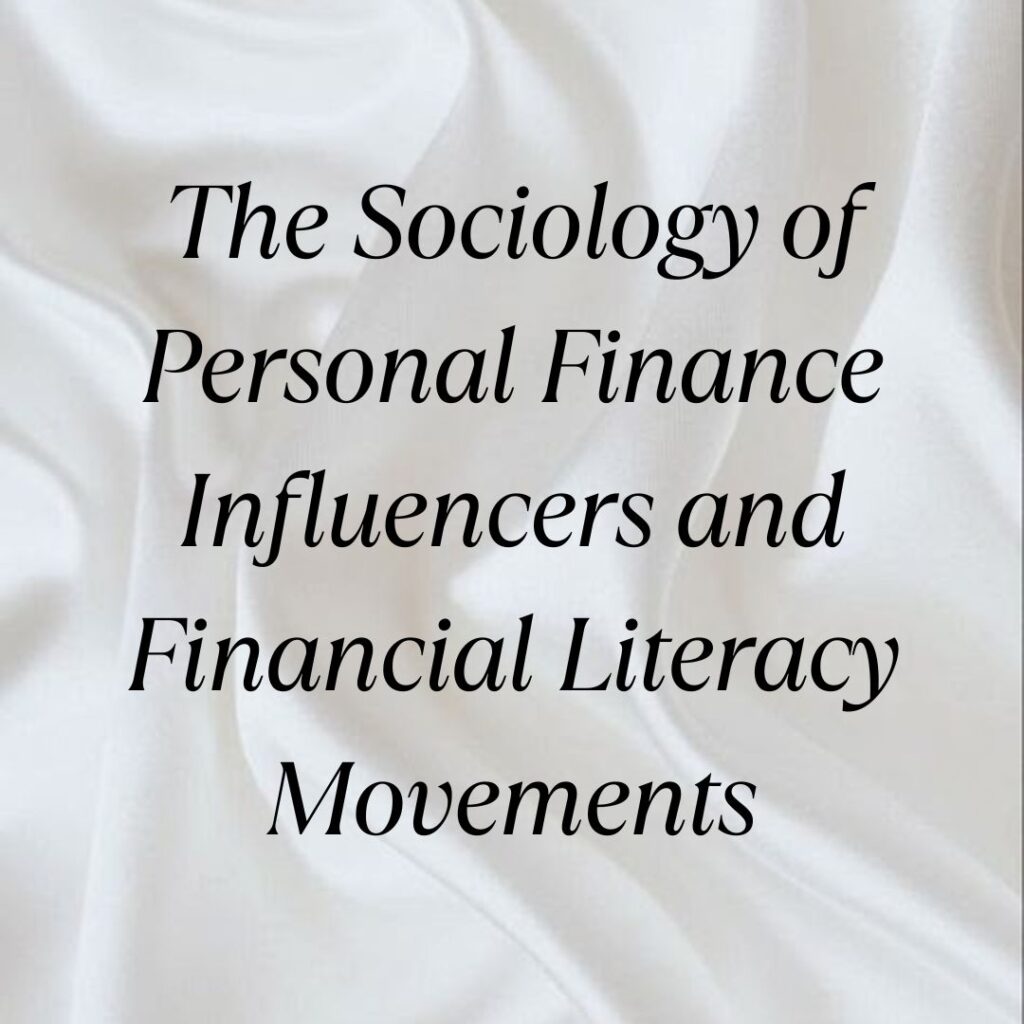In today’s digital age, where information is at our fingertips and social media dominates our daily lives, personal finance influencers have emerged as key players in shaping how individuals manage their money. This phenomenon isn’t just about giving tips on saving or investing; it reflects broader societal trends in education, social influence, and economic empowerment.
Rise of Personal Finance Influencers
Personal finance influencers, often experts in fields like investing, budgeting, and debt management, have leveraged platforms like Instagram, YouTube, and blogs to reach millions worldwide. They bridge the gap between complex financial concepts and everyday life, making financial literacy more accessible and relatable.
Take, for instance, figures like Dave Ramsey and Suze Orman, whose straightforward advice resonates with audiences seeking practical solutions to financial challenges. Ramsey’s “Baby Steps” approach and Orman’s emphasis on emotional and financial well-being have become foundational principles for many followers.
The Role of Social Media in Financial Education
Social media platforms have democratized financial education, allowing influencers of varying expertise to share insights and build communities around financial literacy. This democratization is crucial in societies where traditional financial education may be lacking or inaccessible.
Platforms like TikTok have seen a surge in financial content, with influencers breaking down financial jargon in 60-second videos. This bite-sized approach not only educates but also engages younger audiences who might otherwise find finance intimidating.
Influence on Consumer Behavior
The influence of personal finance influencers extends beyond education; it impacts consumer behavior and financial decisions. For example, a study by Harvard Business Review found that recommendations from influencers can significantly influence purchasing decisions related to financial products and services.
Influencers partnering with brands to promote financial products raise questions about transparency and trust. As influencers monetize their platforms, maintaining authenticity becomes crucial to retaining credibility and follower trust.
Social Movements and Financial Literacy
Financial literacy movements, spurred by influencers and advocacy groups, aim to empower individuals with knowledge to make informed financial decisions. These movements often highlight disparities in financial education across demographics, advocating for systemic change in educational curricula and public policy.
For instance, initiatives like “The Financial Literacy Month” in the United States and campaigns by nonprofit organizations focus on equipping vulnerable populations with essential financial skills. They underscore the role of societal institutions in promoting economic equity through education.
Challenges and Criticisms
While personal finance influencers contribute to greater financial awareness, criticisms exist regarding oversimplification and the commodification of financial advice. Critics argue that one-size-fits-all approaches may not address diverse financial circumstances, leading to unrealistic expectations or inadequate solutions.
Moreover, the influencer economy’s reliance on algorithms and engagement metrics raises concerns about echo chambers and misinformation. Discerning credible advice amid a sea of content remains a challenge for audiences navigating personal finance decisions.
Future Trends and Implications
Looking ahead, the influence of personal finance influencers is likely to grow as digital platforms evolve and global financial landscapes shift. Integrating digital literacy with financial education will be crucial in preparing future generations for economic realities and technological advancements.
Governmental and educational institutions may increasingly collaborate with influencers to reach broader audiences effectively. This collaboration can enhance educational outreach and promote inclusive financial practices that address diverse societal needs.
Conclusion
The sociology of personal finance influencers and financial literacy movements underscores a transformative shift in how individuals perceive and manage their finances. Beyond financial tips, influencers serve as catalysts for societal dialogue on economic empowerment and equity. As we navigate an increasingly interconnected world, understanding the dynamics of these influencers and movements is essential for fostering financial well-being and resilience in communities worldwide.






